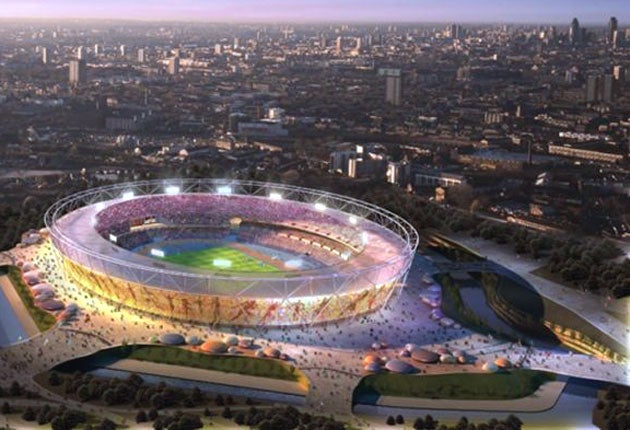65,000 towels... 8 trampolines... Olympic organisers go shopping
British businesses battle for contracts worth £1.7bn to kit out the 2012 Games

It is the world's most demanding shopping list, containing requests for 1,100 shuttlecocks and 5,000 tons of sand, as well as three metal detectors. It is not an eccentric billionaire's attempt to lay on the world's biggest beach party – it is the list of things Britain needs to buy for the 2012 Olympic Games in London.
About £1.7bn worth of contracts remain to be awarded by the London 2012 organisers and the Olympic Delivery Authority, and as the procurement process is ramped up over the coming months, thousands of British businesses are being invited to compete.
The companies are being asked to register on CompeteFor.com, where they can create profiles for their firms and vie for the contracts. The winning businesses will produce every aspect of the Games, from the catering – an estimated 14 million meals will be served – to the badminton shuttlecocks.
More than a million pieces of sports equipment will be needed in total, including 1,200 hockey balls, eight trampolines, 1,400 Fifa-approved footballs, and 92 ball pumps to inflate them.
For the temporary 15,000-seater beach volleyball arena, which will be constructed in Horse Guards Parade in central London, the organisers are seeking companies to provide 5,000 tons of sand and three metal detectors (the latter required to ensure no sharp objects become lodged in the sand).
One might expect the large sports equipment contracts to be dominated by huge companies such as Nike, Adidas or Reebok, but according to Chris Townsend, commercial director of the London Organising Committee of the Olympic Games, this is not the case.
"All of our procurements are genuinely open to anybody, it's a very open and fair process which isn't just based on the best price – it's about quality of service and the capability of the company," he said. "To date, 95 per cent of our contracts have gone to UK-based companies."
The Paralympic Games shopping list includes 310 basketballs for wheelchair basketball, 60 wheelchair rugby balls and 65 tape measures for boccia, a type of bowls. Fifty-two balls with bells embedded within them will also be required for the Goalball competition, in which blind athletes attempt to throw the specially adapted balls into their opponents' goal.
Approximately 17,000 beds and 65,000 towels will also be required, mainly for the athletes' accommodation in the Olympic Village, situated within the main Olympic Park in Stratford, east London.
Hundreds of thousands of seats, 220,000 square metres of tents, 400 electric generators and 240 kilometres of fencing will also need to be bought for the many temporary venues erected across the UK.
At the 2012 Games Business Summit on Wednesday, the Olympics minister, Tessa Jowell, said that British businesses which won contracts for the London Games would be well placed to provide similar services at the competition hosted by Brazil in 2016. Gordon Brown has also signed a government-to-government agreement with the Brazilian president, Luiz Inácio Lula da Silva, which will allow Rio to learn from Britain's experience of staging the Olympics.
"When it comes to competing for Brazil, UK companies with expertise in delivering sporting events will have a major advantage. Being a company that will work on 2012 will give you a unique currency to the global market-place," Ms Jowell said.
London 2012 chairman Lord Coe added that he wanted a "golden decade of British business" to follow on from 2012, while Business Secretary Peter Mandelson said the competition should be "a success on the finishing line and also on the bottom line".
Join our commenting forum
Join thought-provoking conversations, follow other Independent readers and see their replies
Comments
Bookmark popover
Removed from bookmarks